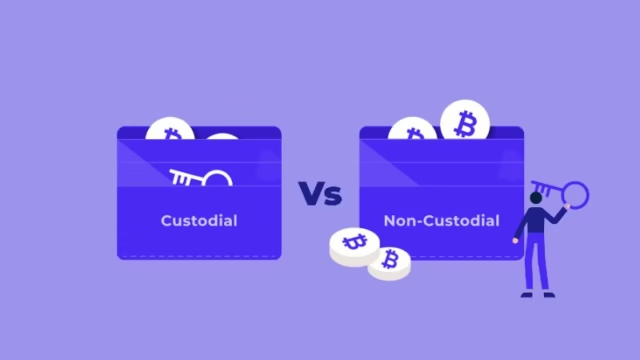The growing popularity of cryptocurrencies has made crypto wallets a must-have for any blockchain project. Whether you’re launching a crypto exchange, DeFi platform, NFT marketplace, or Web3 application, choosing the right wallet—be it custodial or non-custodial—is a crucial step. Each type of wallet has its own features, benefits, and potential risks, so your choice should be tailored to your project’s objectives, target audience, and security needs.
In this blog, we’ll discuss the differences between custodial and non-custodial wallets in depth, assess their pros and cons, and help you decide which option is best suited for your project.
What is a custodial wallet?
A custodial wallet is a cryptocurrency wallet where a third-party service provider, such as an exchange or platform, takes care of managing users’ private keys. Simply put, users don’t have full control over their funds—the custodian does.
Some well-known examples include Binance Wallet, Coinbase Wallet (exchange version) and wallets provided by centralized exchanges.
Key features of a custodial wallet:
- Third-party control: The custodian stores the private keys.
- User-friendly experience: Easy sign-up, password recovery and customer support.
- Integrated services: Often linked to exchanges for faster trading and transactions.
What is a non-custodial wallet?
A non-custodial wallet gives users full ownership of their private keys and funds. In this case, no third party can access or manage the assets.
Examples include MetaMask, Trust Wallet and Phantom. These wallets are popular in the DeFi and Web3 sectors.
Key features of a non-custodial wallet:
- Full ownership: Users have control over their private keys and digital assets.
- Decentralized access: No need to rely on third parties for transactions.
- High security: Less risk of hacking than centralized platforms.
Custodial vs Non-Custodial Wallets: A Quick Comparison
| Feature | Custodial Wallet | Non-Custodial Wallet |
|---|---|---|
| Control of Funds | Custodian holds private keys | User holds private keys |
| Security Risk | Vulnerable to platform hacks | Dependent on user’s key management |
| User Experience | Easy and beginner-friendly | Requires technical knowledge |
| Accessibility | Integrated with exchanges | Works across DeFi & dApps |
| Recovery Options | Password reset & support | Seed phrase recovery only |
| Best For | Beginners, exchanges, institutions | Experienced users, DeFi projects |
Pros and Cons of Custodial Wallets
Pros:
- Onboarding is extremely easy for beginners.
- If you lose your credentials, there are recovery options.
- It is integrated with trading platforms, making transactions faster.
Cons:
- Users don’t own their private keys (remember: “not your keys, not your coins”).
- There is a risk of being hacked or the platform shutting down.
- You have limited control over your assets.
Advantages and Disadvantages of Non-Custodial Wallets
Pros:
- Users have full control over their assets.
- These are better for DeFi, NFT, and Web3 projects.
- You get better privacy and decentralization.
Cons:
- If you lose your private key or seed phrase, you could lose your funds forever.
- These can be a bit tricky for beginners.
- Customer support options are often limited.
Which one should you choose for your project?
When it comes to deciding between custodial and non-custodial wallets, it really depends on your business model, who your audience is, and what kind of security you need.
Choose a custodial wallet if:
- You’re setting up a centralized exchange (CEX).
- Your target audience includes beginners who prefer a simpler experience.
- You want to provide account recovery options.
Choose a non-custodial wallet if:
- You’re launching a DeFi protocol, an NFT marketplace, or a Web3 dApp.
- Your goal is to give users full control over their assets.
- Your project prioritizes decentralization and privacy.
Final thoughts
The discussion about custodial vs. non-custodial wallets really boils down to the trade-off between convenience and control. Custodial wallets are user-friendly and secure in terms of usability, but also have some reliability issues. Non-custodial wallets, on the other hand, provide users with full ownership, but require a bit more technical knowledge and responsibility.
For your project, the choice should reflect your audience’s expectations and your goals. Many successful platforms also take a hybrid approach, offering both types of wallets to meet different user needs.
If you want to create a secure and scalable crypto wallet for your project, working with an experienced blockchain development company is a must. Technoloader is a leading cryptocurrency wallet development firm, providing comprehensive solutions for both custodial and non-custodial wallets to suit your business model. With its expertise in DeFi, NFT, and Web3 solutions, Technoloader will help ensure that your project is future-ready and user-friendly.







